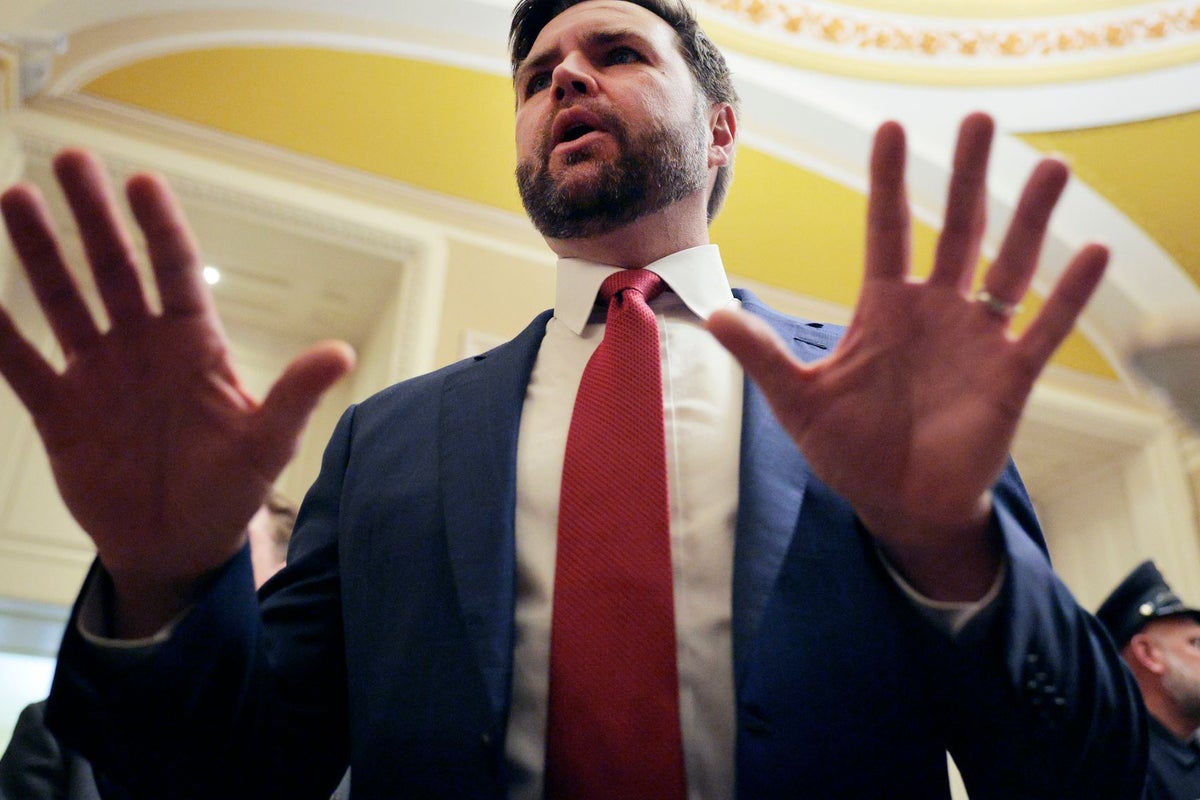
Vice President JD Vance was “bombarded” with questions about President Donald Trump’s new beef deal with Argentina during a lunch with Republican senators Tuesday, according to a report.
Vance was told the deal was an “insult” to American livestock farmers by at least one unnamed senator attending the weekly policy gathering where concerns were raised on the impact on constituents in rural districts amid soaring beef prices, according to Andrew Desidero of Punchbowl News, who cited “multiple attendees” in a post on X about the occasion.
The VP was so under siege, Desidero reported, that he attempted to diffuse the tension at one stage by jokingly asking: “Does anyone have questions NOT about beef?”
The Trump administration announced last week that it would be quadrupling low-tariff imports of Argentine beef as part of an attempt to lower grocery store beef prices at home, which have rocketed of late due to strong consumer demand and tight cattle supplies, caused by summer drought burning up grazing lands and the climbing cost of feed.
Raising the tariff rate quota on Argentine beef to 80,000 metric tons will allow the country to ship more beef to the U.S. at a lower duty rate. This gesture also represents a favor to the country’s president, Javier Milei, whom Trump has befriended and recently bailed out with a $20 billion currency swap.
The Department of Agriculture also announced a plan to expand the domestic cattle herd and support American ranchers, with Agriculture Secretary Brooke Rollins saying on Fox Business’s Mornings with Maria last Wednesday that the administration is working to help U.S. consumers and producers at the same time.
“There is frustration on both sides,” Rollins said. “And I was with the president yesterday and he is very, very frustrated because [of] everything he’s done to cut taxes, to bring down costs.”
The move to increase imports has indeed angered America’s ranchers, a demographic that overwhelmingly supported Trump in last year’s presidential election. They argue that the administration should support domestic businesses exclusively rather than increase imports from competitor nations that threaten their livelihoods.
The president’s financial support for Argentina has also been unpopular, given that Trump’s high tariffs on China have prompted the rival superpower to look to South America for soybeans, further hurting U.S. farmers.
“A deal of this magnitude with Argentina would undercut the very foundation of our cattle industry,” said Justin Tupper, president of the United States Cattlemen’s Association and a South Dakota rancher himself.
Among the Republicans who have publicly expressed concerns about Trump’s actions is Senate Majority Leader John Thune, also of South Dakota, who told reporters last Thursday that he was concerned about the influx of Argentine beef and said he hopes to influence the policy’s implementation.
“We’re paying close attention to it, and we’ve been in touch with the White House, Department of Agriculture, U.S. trade rep on all this stuff, trying to figure out where it’s headed,” Thune said.
Nebraska Republican Rep. Adrian Smith said that he was also concerned about the coming imports, saying: “Policy and statements which unduly influence and undermine the domestic cattle market threaten our domestic food security and are not helpful.”
Trump himself has reacted angrily and defensively towards the unhappiness expressed, writing on Truth Social: “The Cattle Ranchers, who I love, don’t understand that the only reason they are doing so well, for the first time in decades, is because I put Tariffs on cattle coming into the United States, including a 50 percent Tariff on Brazil.
“If it weren’t for me, they would be doing just as they’ve done for the past 20 years – Terrible! It would be nice if they would understand that, but they also have to get their prices down, because the consumer is a very big factor in my thinking, also!”
